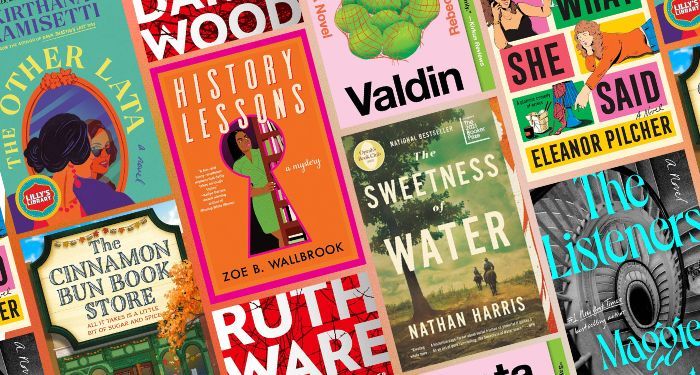When I was four years old, I witnessed the abduction of schoolchildren in Ibadan, Nigeria. Over the years that followed, more friends, parents, and neighbors disappeared—some were found with severed limbs, others never returned. I would grow up to become the most dis-tuned human I knew—I struggled with expression, had an undefinable fear of spaces, and couldn’t access my own trauma. When I found poetry in 2013, after years of burying myself in math labs and olympiads, I was searching for a language that could hold both the magnitude of collective trauma and the inadequacy of words to contain it. A language to bury friends whose names are stuck in the blanks of my memory, whose faces are dreams I would later have in my small rooms in Iowa. A language capable of witnessing the unwitnessable.
The books gathered here do that. They refuse linear testimony and embrace a formal restlessness that informed my debut poetry collection The Years of Blood. My collection, an archive of lost people living in memory, required the dead and the living to converge, to mourn and bury one another. Sadly, the English language only provides linear expression for the fractured reality of violence and survival. Writing the poems demanded something else entirely—a poetics that could embody fragmentation, carry silence, sit within itself in language, and refuse the false comfort of resolution.
The eight poetry collections gathered here rarely appear on standard trauma syllabi, yet they proved indispensable companions while I navigated the intersection of personal memory and collective grief. My trauma is collective one—I acknowledge this despite the fact that many Nigerians are numb to it, are not writing and speaking in the face of these everyday disappearances, and have been politically maligned for expressing themselves. Each book on this list demonstrates what I call “trauma-informed poetics,” offering formal innovations that emerge both from aesthetic choice and the limitations of language. These poets demonstrate an understanding of the way conventional storytelling cannot contain the reality of historical atrocity, systemic and state-backed violence, and intergenerational trauma. These poems draw inspiration from witness poetics, which mirror the psychological effects of trauma. The poems are characterized by fragmentation, repetition, temporal disruption, and the use of silence to testify.
Zong! by M. NourbeSe Philip
Reading Philip’s book-length poem is like communally excavating the 1781 Zong massacre through radical erasure. This was a mass murder in which the crew of the British slave ship Zong threw more than 130 enslaved Africans overboard to claim insurance. I entered Zong! as one might approach a wreck—slowly, reverently, unprepared. I didn’t expect the poem to feel like drowning itself, although I had expected to find myself in some sort of catastrophe. How heavy the memory of the archive. How the truth cannot be stowed away. In Zong!, Philip fragments language and scatters words into wave-like spirals, a visual and sonic entropy that registers disorder and uncertainty, echoing the bodies of human beings forced into the ship’s lower decks and the terror imposed upon them. Silence speaks through this feral disorientation of language. The multilingual collisions—English, Spanish, Patois, Yoruba, Latin—pulled me out of linguistic certainty and into the chaos of loss.
Iron Moon: An Anthology of Chinese Worker Poetry edited by Qin Xiaoyu, translated by Eleanor Goodman
This anthology presents work by 31 Chinese migrant worker poets from among China’s estimated 274 million internal migrants, documenting industrial dehumanization through diverse formal approaches. The collection ranges from lyrical verse to experimental prose poems, documentary techniques, and found poetry that transforms the language of factory production into verse. Poets like Zheng Xiaoqiong develop what she calls “a language of callouses,” incorporating metallic vocabulary and machine rhythms into their verse structure. Xu Lizhi’s haunting “I Swallowed an Iron Moon” becomes emblematic of the collection’s approach: “I swallowed an iron moon / they called it a screw.” The collection emerged following the Foxconn suicides that brought international attention to factory conditions in China and addresses twin traumas of alienated work life and separation from loved ones. These worker-poets serve as witnesses to workplace accidents, deaths, and systematic exploitation. By transforming industrial terminology into poetic language, the poets create beauty while documenting catastrophe, proving that poetry can emerge from the most dehumanizing conditions.
The Rinehart Frames by Cheswayo Mphanza
Mphanza’s collection uses centos and ekphrasis to explore Black erasure across the African diaspora. The book collocates Ralph Ellison’s Invisible Man Rinehart with Abbas Kiarostami’s experimental film 24 Frames to examine what Mphanza calls “the splayed-ness of Blackness.” Mphanza’s formal innovations include the extensive use of documented centos, the adaptation of the pecha kucha format for rapid-fire contemplations, and the fusion of collaborative testimony with ekphrastic technique. In “Open Casket Body Double for Patrice Lumumba’s Funeral,” written in Lumumba’s voice from his casket, the poet addresses historical trauma through ventriloquism and the appropriation of borrowed language. The cento form becomes a method of communal witnessing, sampling voices across the diaspora to create testimony that refuses individual authorship. This “shamanistic archaeologist of the soul” reassembles fragments of collective memory, making the work both formally innovative and spiritually urgent.
Collective Amnesia by Koleka Putuma
This groundbreaking collection stages baptisms, protests, and underwater hauntings to examine post-apartheid South Africa’s strategic forgetting, marking what critics call “a massive shift in South African poetry.” Putuma employs experimental typography, including strikethroughs, capital letters, and varied spacing to create unsettling reading experiences that mirror psychological fragmentation. Drawing from her theater background, poems like “No Easter Sunday for Queers” use performance elements including call-and-response and dramatic pacing. The collection’s three movements—”Inherited Memory,” “Buried Memory,” and “Post Memory”—explore how childhood transmits trauma, how grief lives in the body, and how contemporary violence echoes historical atrocity. Putuma’s formal disruptions embody traumatic experience, refusing to make trauma “prettier” for the reader’s comfort. The devastating “Memoirs of a Slave & Queer Person” consists of one line: “I don’t want to die with my hands up or my legs open”—connecting police violence and sexual assault through formal compression.
Apricots of Donbas by Lyuba Yakimchuk
This bilingual collection documents displacement from the 2014 Russian invasion of eastern Ukraine through linguistic decomposition that mirrors physical destruction. Yakimchuk, forced to flee her coal-mining hometown when Russian-backed militants occupied the region, literally decomposes place names—Luhansk becomes “hansk,” because “Lu has been razed to the ground.” The collection’s five sections employ Ukrainian Futurist techniques reminiscent of 1920s poet Mykhaylo Semenko, using wordplay and fragmentation to document contemporary war. Formal innovations include body-landscape conflation (“I wash the coal / like I’d wash my braids”), homophonic wordplay using Ukrainian linguistic structures, and absurdist humor as survival mechanism. The “Decomposition” section serves as the book’s heart, with the poet declaring, “there’s no poetry about war / just decomposition.”
Footnotes in the Order of Disappearance by Fady Joudah
Joudah employs recursive elegies that fracture time, nation, and Arabic-English borders to examine Palestinian displacement and medical witnessing. He creates “footnotes” that complicate, rather than explain, using medical prosody, to explore mortality and desire. Formal innovations include temporal fragmentation that switches between past and present, collaborative authorship that “intentionally effaces the lines of authorship,” and prose poems that critics describe as “lustrous” examples of the form. The collection’s recursive structure mirrors how trauma returns cyclically rather than progressively, creating what one critic calls “gradual inoculation” with irony and paradox. The collection demonstrates how formal innovation can create intimacy while maintaining necessary distance from unspeakable experiences.
Obits. by Tess Liem
How Writing Fiction Helps Me Give Shape to the Chaos of Trauma
The stories we most need to tell don’t have beginnings, ends, or morals — unless we write them that way

This debut collection asks “Can poems mourn the unmourned?” by creating obituaries for lives newspapers ignored. These are victims of mass violence, missing women, fictional characters, and the poet’s Indonesian aunt. Winner of the 2019 Gerald Lampert Memorial Award, the collection uses obituary structure as both constraint and liberation, offering multiple definitions of that “obit”: it is “a story we have to tell ourselves,” “an arithmetic,” and “an opportunity.” The book’s formal innovations include eleven variations of “Obit.” poems scattered throughout four sections, center-justified text creating visual uncertainty, and the Montreal metro system as a recurring metaphor for collective mourning. At one point, a metro platform’s yellow caution line becomes the proximity to death: “Stand on the cautious yellow / Stare down the tunnel & shrug.” Liem employs a “poetics of defamiliarization” through fragments, actively resisting traditional elegiac metaphors. Rather than claiming to know the dead, Liem confronts her own limitations in writing about loss, creating space for collective uncertainty.
Exiles of Eden by Ladan Osman
This formally experimental collection uses the Adam and Eve story to explore refugee displacement and institutional violence, refracting “the streets of Ferguson, the halls of Guantánamo, and the fields near Abu Ghraib” through a mythological lens. Osman’s approach to trauma employs embodied witnessing where “pain is not located in an identifiable muscle only, but in a person, a relationship.” The collection rejects prescribed narratives, with the speaker noting, “I resist the narrative that’s ascribed to someone like me.” The final poem, “Refusing Eurydice,” creates ritual language for collective healing: “We are looking for a better myth. / We’ve only been looking since Eve.” Through mythological reframing, Osman creates new possibilities for understanding contemporary displacement and violence, showing how ancient stories can contain modern trauma while pointing toward transformation.
The post 8 Innovative Poetry Collections that Articulate Atrocity appeared first on Electric Literature.
















 Bengali (Bangladesh) ·
Bengali (Bangladesh) ·  English (United States) ·
English (United States) ·